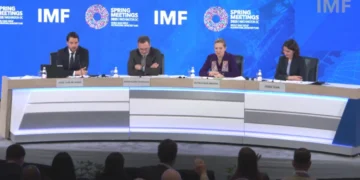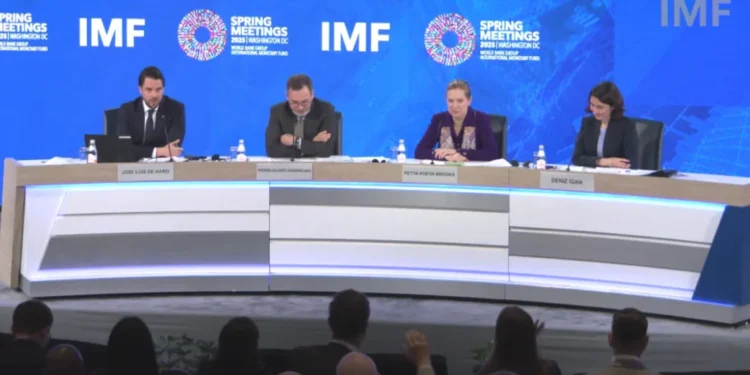By Ebi Kesiena
The International Monetary Fund (IMF) has revised its growth projections for Nigeria, forecasting the country’s economy to expand by 3% in 2025, a slowdown from its earlier estimate of 3.2% issued in October 2024.
The new figures were released as part of the IMF’s World Economic Outlook (WEO) during the Spring Meetings currently taking place in Washington, D.C. on Tuesday.
The downward revision reflects not only Nigeria’s domestic economic challenges but also global headwinds, including mounting trade tensions and weakening investor confidence. According to the report, the IMF expects Nigeria’s growth to decelerate even further in 2026, to just 2.7%.
The Bretton Woods institution attributes the broader economic slowdown to deteriorating global trade dynamics, particularly the reintroduction of tariffs by the United States and retaliatory measures by its major trading partners.
These developments, the IMF says, are likely to dampen global demand, disrupt supply chains, and increase uncertainty affecting emerging markets in Nigeria.
For Africa’s largest economy, the IMF’s latest outlook signals a need for urgent structural reforms to spur productivity, improve macroeconomic stability, and attract investment. The Nigerian economy, while still recovering from the twin shocks of the COVID-19 pandemic and global oil price volatility, continues to grapple with inflation, weak infrastructure, rising debt levels, and a fragile exchange rate.
Despite the lowered projections, Nigeria is expected to outperform its regional peer, South Africa, which the IMF estimates will grow by only 1% in 2025 and 1.3% in 2026. However, economists warn that without aggressive policy interventions, Nigeria’s modest advantage could erode.
“Nigeria’s growth outlook remains fragile,” the IMF stated, “and is contingent on strong and sustained reforms in fiscal policy, energy pricing, and exchange rate management. Inflationary pressures, security risks, and limited fiscal space continue to weigh on investor sentiment and economic momentum.”
The IMF also emphasised the importance of improving governance and enhancing transparency in public spending, especially as the Nigerian government looks to attract foreign capital and stimulate non-oil sectors such as agriculture, technology, and manufacturing.
Meanwhile, this downgrade in growth projections adds pressure on President Bola Tinubu’s administration to deliver on its reform agenda.


































